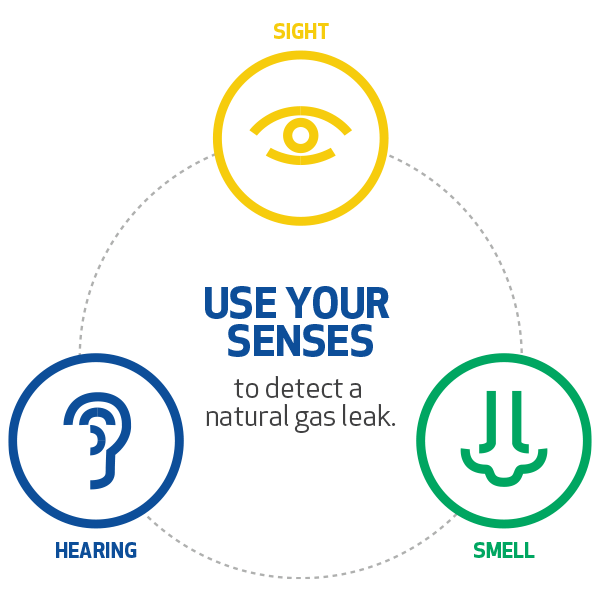
Transportation by pipeline is the safest form of energy delivery in the country. In fact, natural gas pipelines transport approximately one-fourth of the energy consumed in the United States and is delivered to customers through over 3 million miles of piping. We conscientiously monitor and maintain our pipeline systems to ensure the safe and reliable delivery of natural gas to your home.
PURPOSE & RELIABILITY
The purpose of our gas system is to provide the public, both residential and commercial enterprises, with a clean, economical, and safe energy source for a variety of uses. Summit Utilities works diligently to ensure pipeline safety and reliability through a variety of ways, including inspection programs, public education, pipeline markers, facility mapping, surveys, patrolling, pressure monitoring, odorization, and liaison with public officials.
A majority of gas pipeline leaks occur as a result of individuals digging on their own property. State law requires all excavators and private citizens to contact an 811 center prior to any excavation activities. Once 811 is called, Summit Natural Gas will mark all gas pipelines free of charge.
Although natural gas pipelines have an unparalleled safety record, occasionally leaks do occur.

It’s important to know the signs and hazards of a natural gas leak.
Although natural gas pipelines have an unparalleled safety record, occasionally leaks do occur.
How to Recognize a Natural Gas Leak
If you suspect a natural gas leak, call Summit immediately at 800-883-3181 from your neighbor’s house or another location away from the leak.
If you smell gas, act fast! Natural gas does not have an odor, so an odorant called Mercaptan is added to signal a leak. Mercaptan gives off a foul smell, reminiscent of rotten eggs or sulfur.
If a natural gas leak is suspected, NEVER do anything that might cause a spark. This includes:
Most leaks are small and not dangerous, but if a leak is suspected, always comply with the following procedure to be safe:
Under no circumstances should you ever attempt to repair, stop or fix a pipeline leak, or rupture. Trained pipeline technicians with specialized equipment and knowledge are the only individuals qualified to conduct repairs on natural gas pipelines.
Homeowners and contractors must call 811 before undertaking any excavation or digging projects.
Calling 811 is safe, free, and the law. For your safety, you are required by law to call 811 at least two working days before you plan to dig so your underground utility lines can be marked.
How 811 works:


For many years, utilities nationwide have installed gas pipelines by boring underground, rather than digging trenches, to avoid tearing up paving and landscaping.
Existing utility facilities, such as underground electrical and pipes, are located and marked in accordance with the requirements of Digsafe laws before new gas pipelines are installed using underground boring technology.
Sometimes, a private underground facility such as private sewer line that is not mapped and cannot be discovered with the use of above-ground locating devices is inadvertently struck by the underground boring machine resulting in what is known as “cross-bore.”

Many consumers do not know excessively hot tap water can cause severe burns, and most injuries and deaths involving tap water scalds are to the elderly and children under the age of five. The U.S. Consumer Product Safety Commission (CPSC) urges all users to lower their water heaters to 120 degrees Fahrenheit. In addition to preventing accidents, this decrease in temperature will conserve energy and save money.*
Most scalding injuries can be prevented by making sure your water heater is set to a safe temperature, always feeling the water temperature before placing a child in the bathtub, and never leaving a child alone or with other young children in the bathtub.